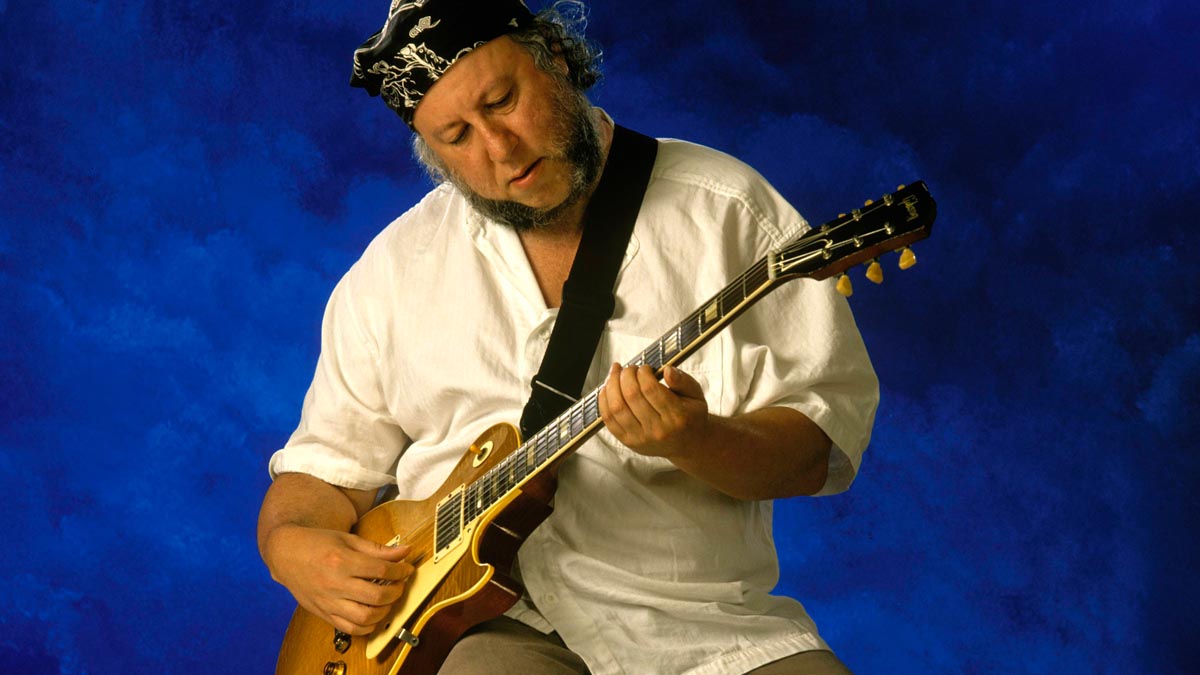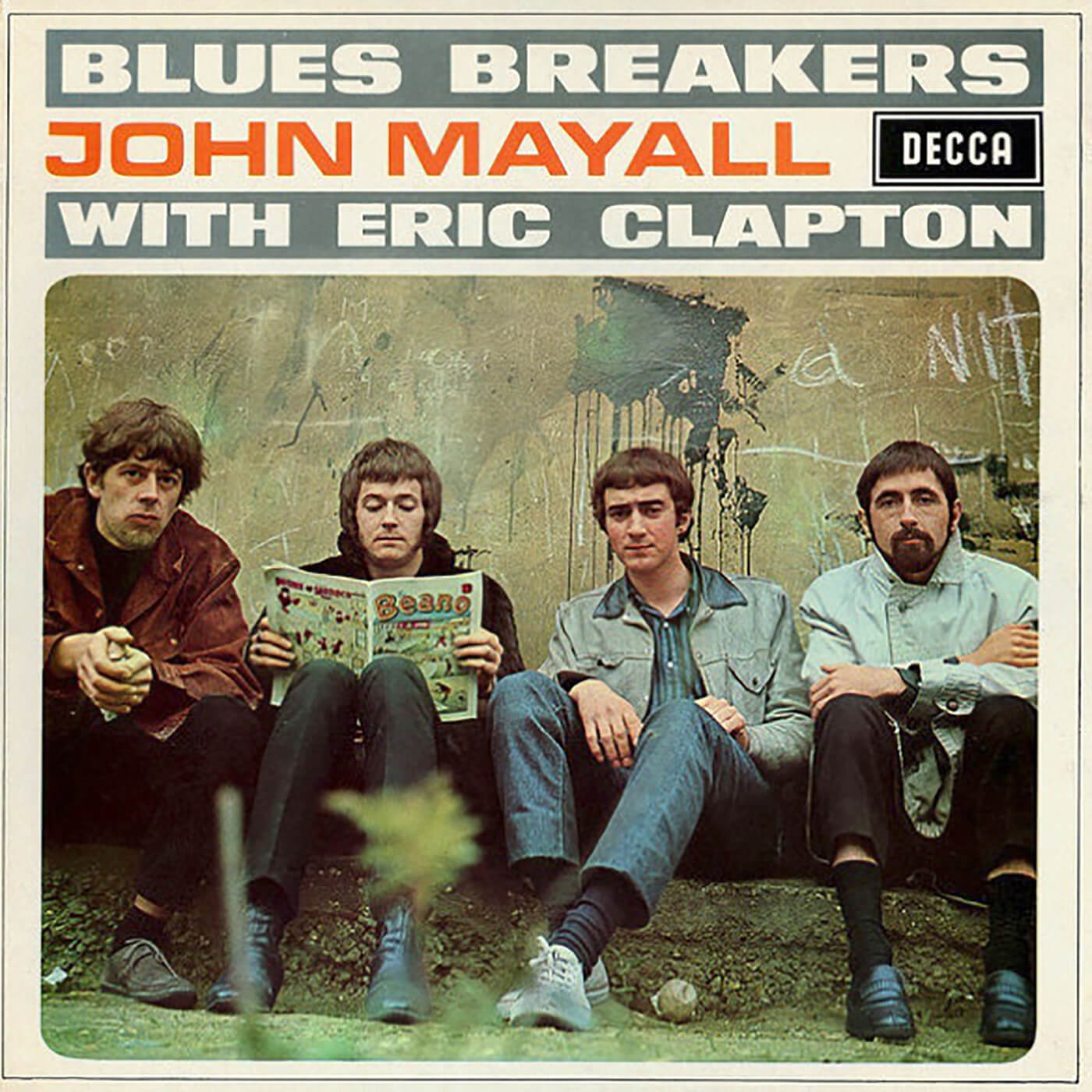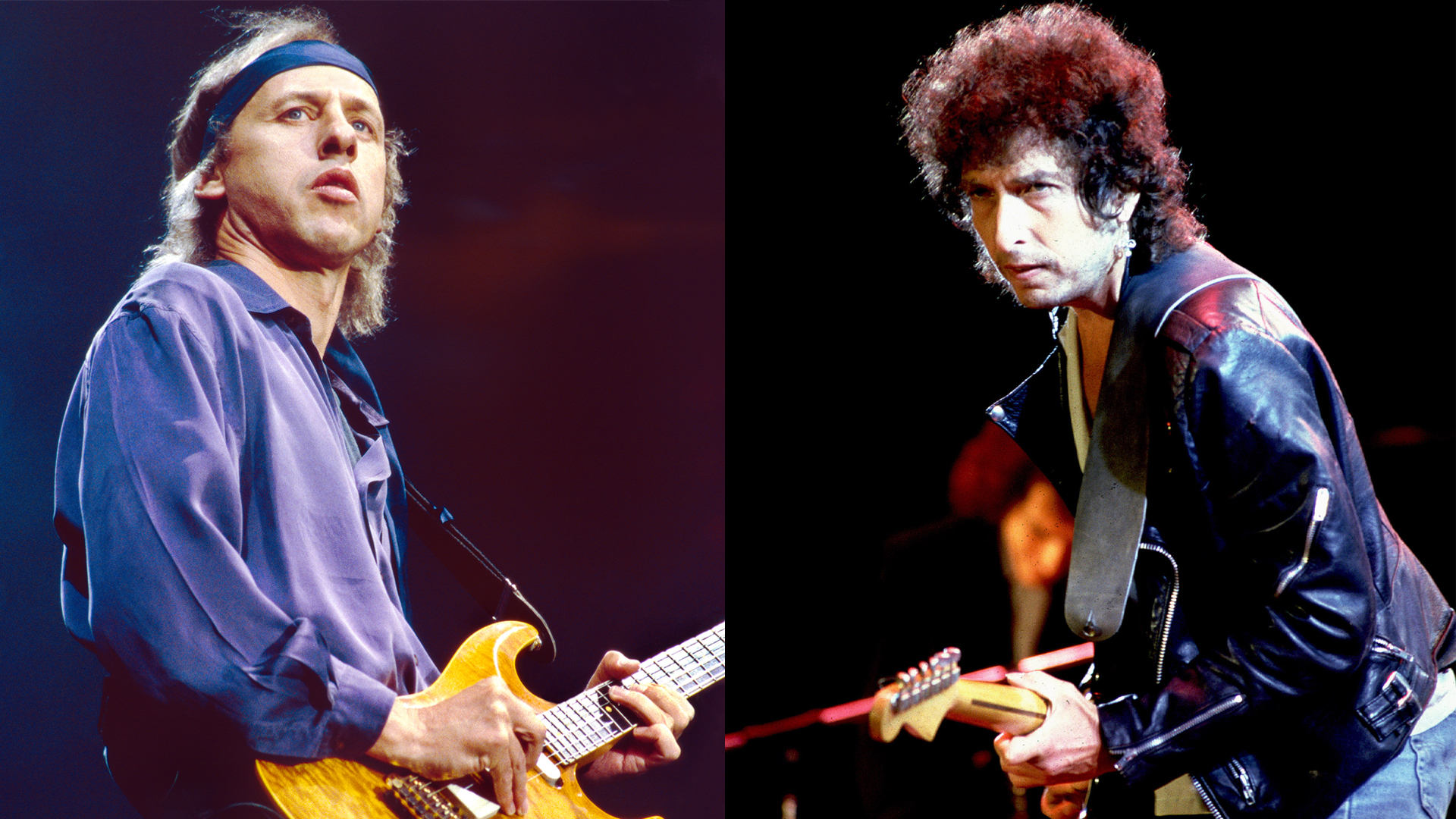“John Mayall said I was the best guitarist he’d heard since Eric Clapton. I tried to float on that.” Peter Green recalled talking his way into Eric Clapton’s Bluesbreakers shoes. That's when his struggles began
The guitarist convinced Mayall to give him a shot because he deserved “better” than to be Clapton's stand-in. But he never liked comparisons to the man he replaced

By the summer of 1965, Eric Clapton’s reputation was so lofty that one fan had spray-painted "Clapton is God" onto a North London wall. Following his roughly one-and-a-half-year tenure in the Yardbirds, Clapton had proved his blues-rock bonafides in John Mayall’s Bluesbeakers, a band Classic Rock calls “a finishing school for some of the U.K.’s finest blues musicians.” But when Clapton took a leave of absence that summer and absconded to Greece, his role in the band suddenly came up for grabs.
Peter Green was ready.
In a rare 2012 interview with Classic Rock from 2012, eight years before his death, the reclusive Green explained how he managed to talk his way into the band to become Clapton's replacement. The move would not only establish him as a guitar great in his own right — it would also serve as a springboard to launch his own group, Fleetwood Mac.
When Clapton went AWOL, John Mayall tapped Jeff Kribbett to stand in for their aloof deity. Green, having blagged his way into the band’s show at London’s Marquee, didn’t feel Kribbett was the best man for the job. As Mayall later recalled, "He kept coming down to all the gigs and saying: ‘I’m much better than him.' " Green's persistence paid off. He talked his way into the job and deputized for Clapton over three shows. In the process, he earned Mayall's respect.
“John Mayall paid me a great compliment,” Green told Classic Rock. “He said I was the best guitarist he’d heard since Eric Clapton. I tried to float on that. But I used to drink before I went on. It seemed to be the thing where everyone went to the pub. I couldn’t play properly. Most of them [gigs] I flunked.”
Yet Mayall never voiced any disappointment over Green's performances. Indeed, even Clapton, once back on British soil, was impressed by Green’s talents.

“He was a real Turk,” he later said of his understudy. “A strong, confident person who knew exactly where he was going.”
All the latest guitar news, interviews, lessons, reviews, deals and more, direct to your inbox!
When Clapton left the Bluesbreakers for good in the summer of ‘66, Green would reclaim the post he so briefly and tantalizingly held the year before. In the interim, he hsd auditioned for keyboardist Peter Barden's band, Peter B’s Looners, which would foreshadow a key part of his future.
“They had funny clothes on. Hipsters with big belts and fancy buckles," he recalled. "It might have been Carnaby Street stuff, but it blew my mind."
Barden, who would later find success in prog stalwarts Camel, had a gangly drummer who, at six foot five, towered over his bandmates. His name was Mick Fleetwood.
Greeen landed the gig but didn’t match his colleagues’ fashion sense, dressing in denim jeans and sporting “riverboat captain” sideburns. “Bardens would say to me: ‘You look like a dustman,” Green said. Unlike the Looners, Green was all about the music.
The guitarist made his recording debut with the single "If You Wanaa Be Happy," an organ-led instrumental that recalled something Booker T. & the MGs might have played. There wasn't much for Green to do on the track other than comp chords.
It soon wouldn't matter though. Before Green could settle into life in the band, Mayall came calling. The landmark Blues Breakers With Eric Clapton album had been released in July 1966, but by then Clapton had already departed to form Cream. Mayall, however, wasn’t one to sit and mope. By October he and the group were back in the studio, having kept news of Clapton’s departure a secret. Producer Mike Vernon was among the first to know.
“As the band walked in the studio, I noticed an amplifier which I never saw before,” he said. “So I said to John Mayall: ‘Where’s Eric Clapton?’ Mayall answered: ‘He’s not with us anymore. He left us a few weeks ago… Don’t worry, we got someone better.’”
Vernon didn’t believe anyone could be "better than Clapton," but Mayall was proud of his new secret weapon. He told the producer: “In a couple of years he’s going to be the best”.
The result of those sessions was the album A Hard Road. It featured two original Green compositions, including the instrumental The Supernatural, a pre-cursor to the classic cut ""Black Magic Woman" that he would later create with Fleetwood Mac.
“I don’t know anyone who wouldn’t be worried about having to follow Eric,” Vernon offered. But Green’s slow and measured solos found legions of Claptonites embracing him. “Peter had a deftness, a more melodic style," Vernon offered ."Deeper blues.”
Tellingly, the praise never sat well with Green, whose ambivalence about fame would eventually be his undoing. The guitarist said he wrestled with nerves and insecurities during those early shows.
“Sometimes I’d feel confident. Other times I feel like I’m going too fast,” he said. He noticed a clear correlation between the speed of his playing and the audience’s adoration for it, but he condemned what he called the “7,541 notes a minute” guitar hero movement that would soon follow, in part thanks to Clapton’s shredding with Cream.
“I don’t like people to say to me: ‘Oh, you’re better than Eric Clapton,’ all this kind of thing. People used to do that, and I didn’t know where to put myself.”
Head to Louder Sound to read the interview in full.
A freelance writer with a penchant for music that gets weird, Phil is a regular contributor to Prog, Guitar World, and Total Guitar magazines and is especially keen on shining a light on unknown artists. Outside of the journalism realm, you can find him writing angular riffs in progressive metal band, Prognosis, in which he slings an 8-string Strandberg Boden Original, churning that low string through a variety of tunings. He's also a published author and is currently penning his debut novel which chucks fantasy, mythology and humanity into a great big melting pot.


